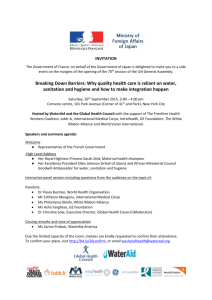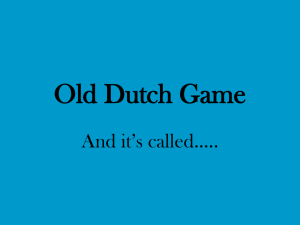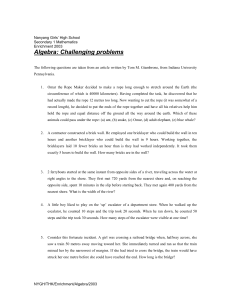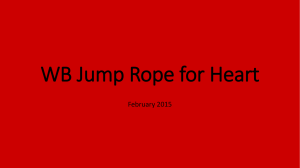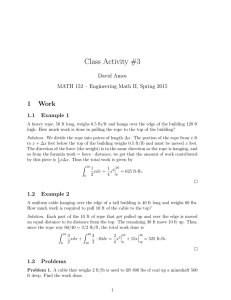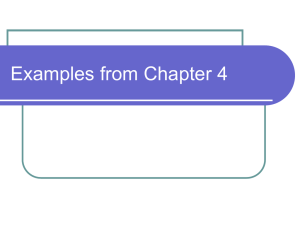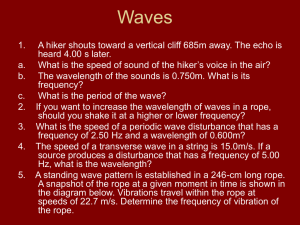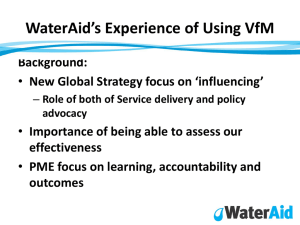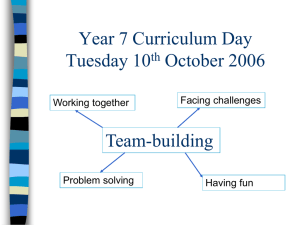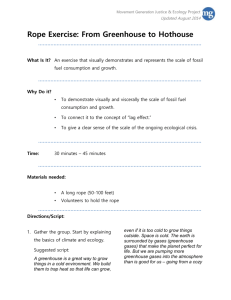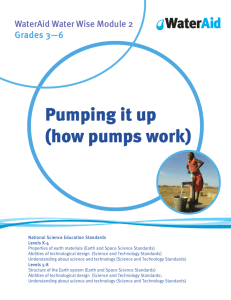WaterAid Ghana`s Rope Pump Activities
advertisement
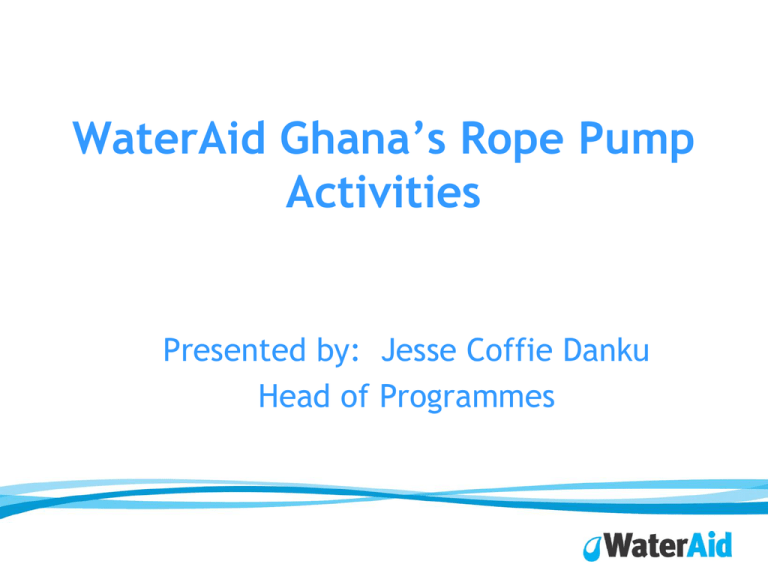
WaterAid Ghana’s Rope Pump Activities Presented by: Jesse Coffie Danku Head of Programmes Introduction • WaterAid’s vision is of a world where everyone has access to safe water, sanitation and hygiene services • WaterAid’s mission is to transform the lives of poor people without water and sanitation by working with and influencing others to deliver these services equitably and sustainably • WaterAid, as an implementation strategy, uses model projects to influence big sector players, e.g the rope pump • Value based methodologies are used to model projects • • relative advantage model project will produce in sector Create stairway of innovation • Rope Pump technology is one such model project • It is a low cost, simple and easy to maintain handpump that can be made with locally available materials. • The technology is useful in domestic and community domestic water supply as well as in the field of small scale agriculture. • Operates effectively on hand dug wells and tube wells to a maximum depth of 30m 2 Processes (Steps) • Determine the value curve • Compare relative value model will add to sector with value existing system(s) are providing • Generate key elements of models by considering ff questions • What factors should be raised beyond sector standard • What factors should be created that the sector has never offered • What factors should be reduced well below the sector standards • What factor should be eliminated that the sector has taken for granted • This has to be done in a brainstorming session • Once the key elements of value have been generated a comparison can be done by rating each of the elements. 3 The Journey so far • Determined key elements of rope pump • Developed concept paper on rope pump promotion • Organised sector brainstorming • National taskforce formed to follow up on technology • On-going implementation of technology in three northern regions • Documentation 4 Ranking of Key Elements: - Rope Pump vs. some existing systems Key Elements Rope Pump Nira Afridev GMIM II Appropriate Affordable Technology 5 3 3 1 Potential local Capacity for O&M 3 3 2 2 Durability 2 5 3 4 Ease of Replicability 2 4 4 4 Bacteriological Water Quality Issues 2 4 4 4 Acceptability 1 5 4 3 Availability of local Materials 4 1 1 1 Adaptability (Geographical location) 1 3 4 4 Provide livelihood opportunity for the poor 4 1 1 1 Ease of operation 4 2 3 2 Environmentally Friendly 5 2 2 2 5 Value Curves Thank you! 6 Value Curve (future level) 7
